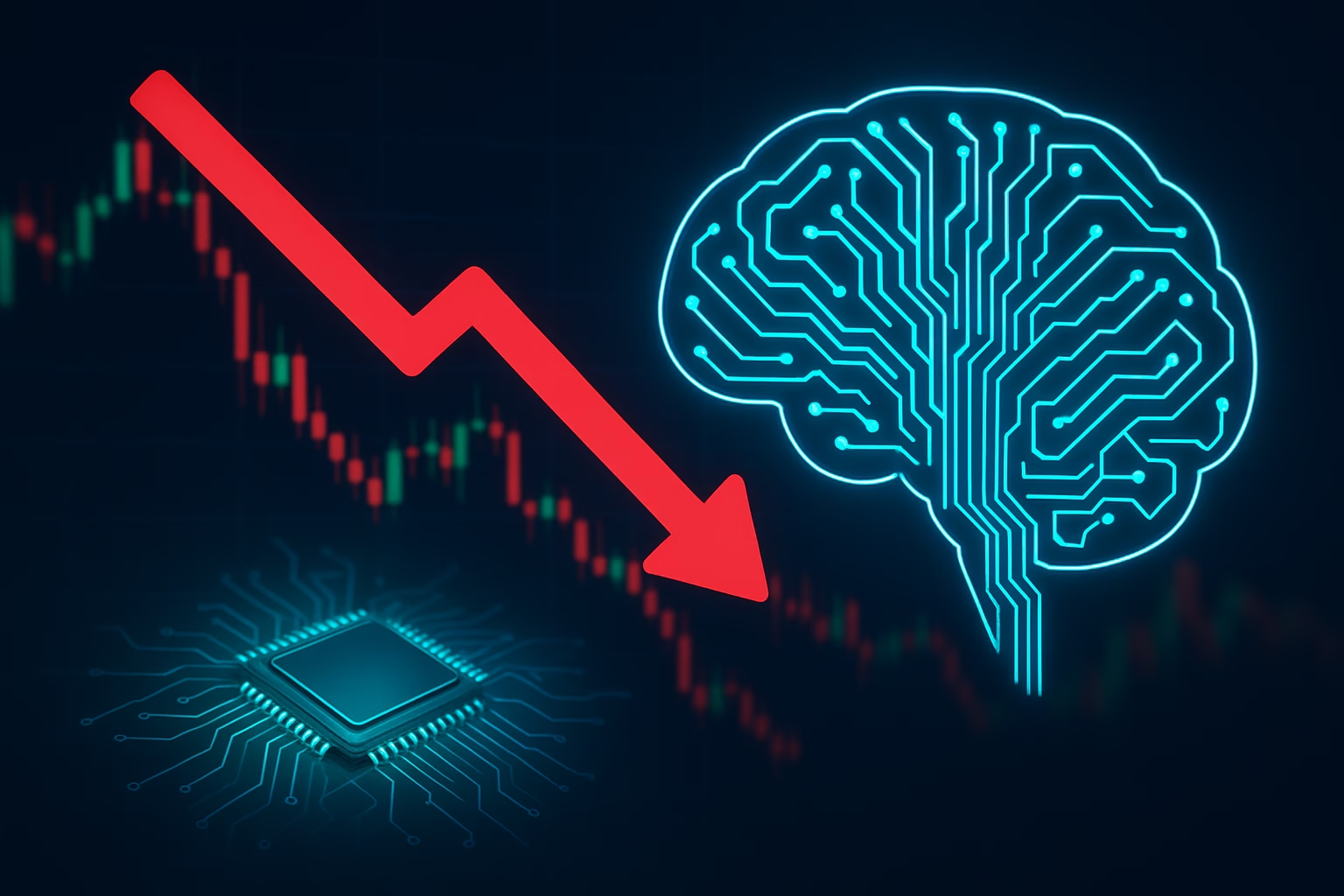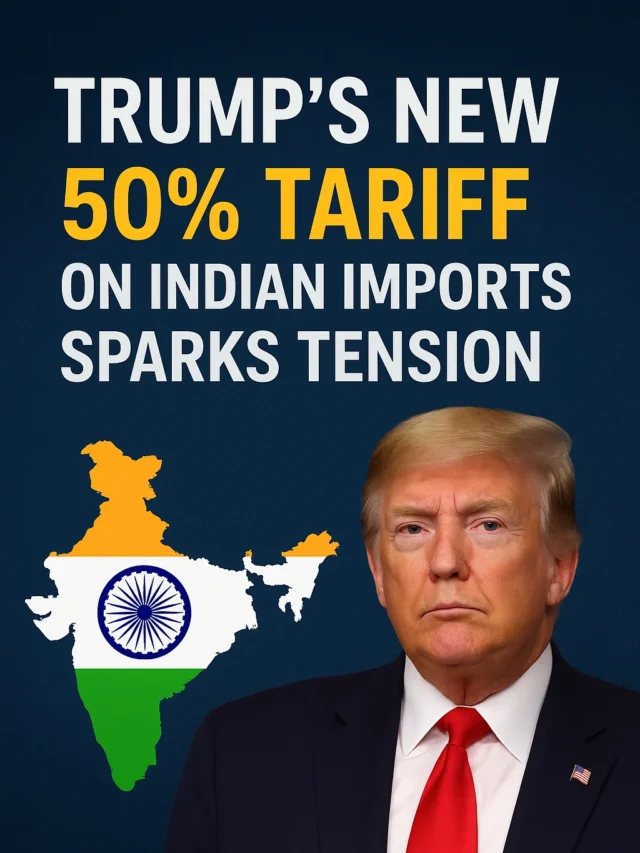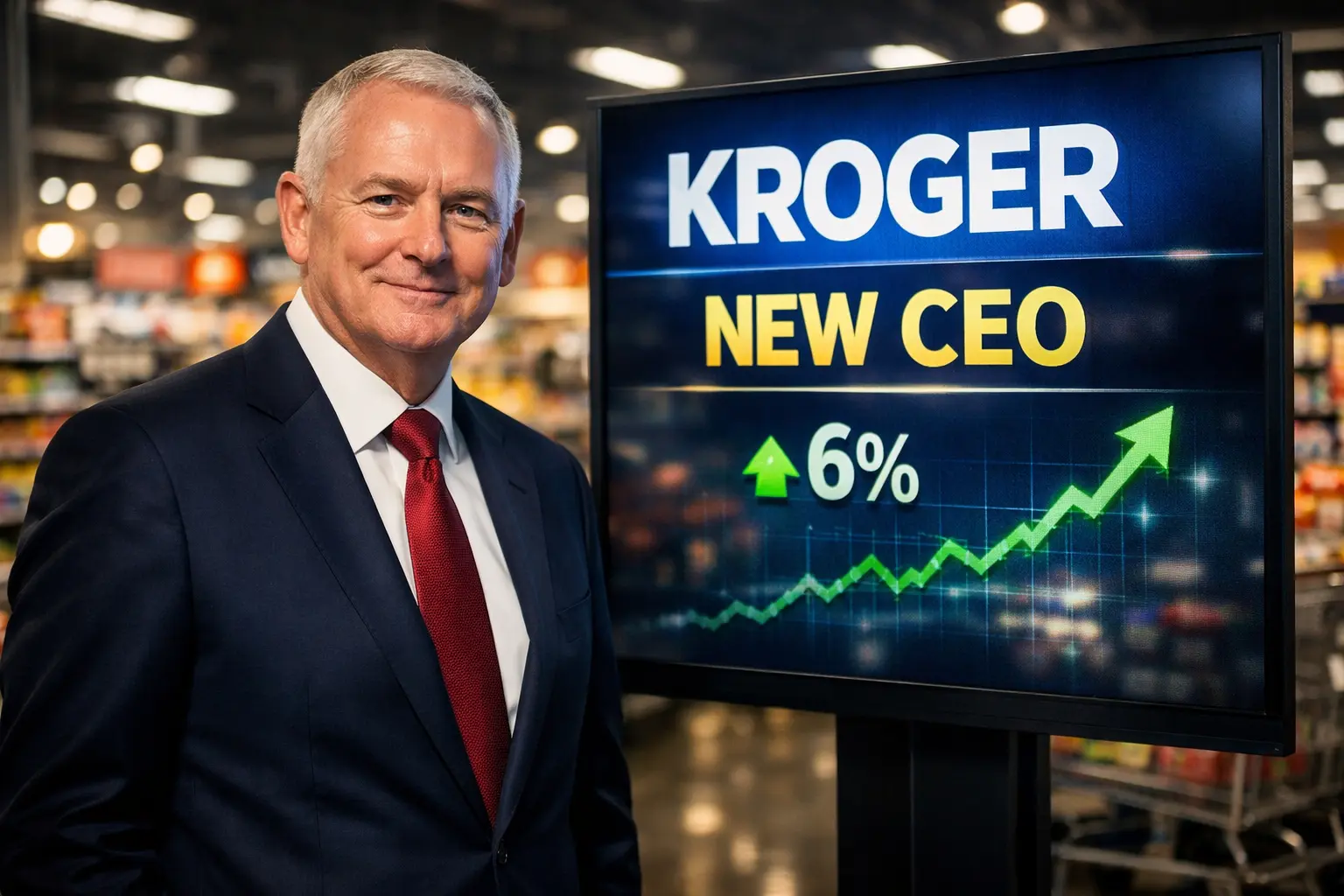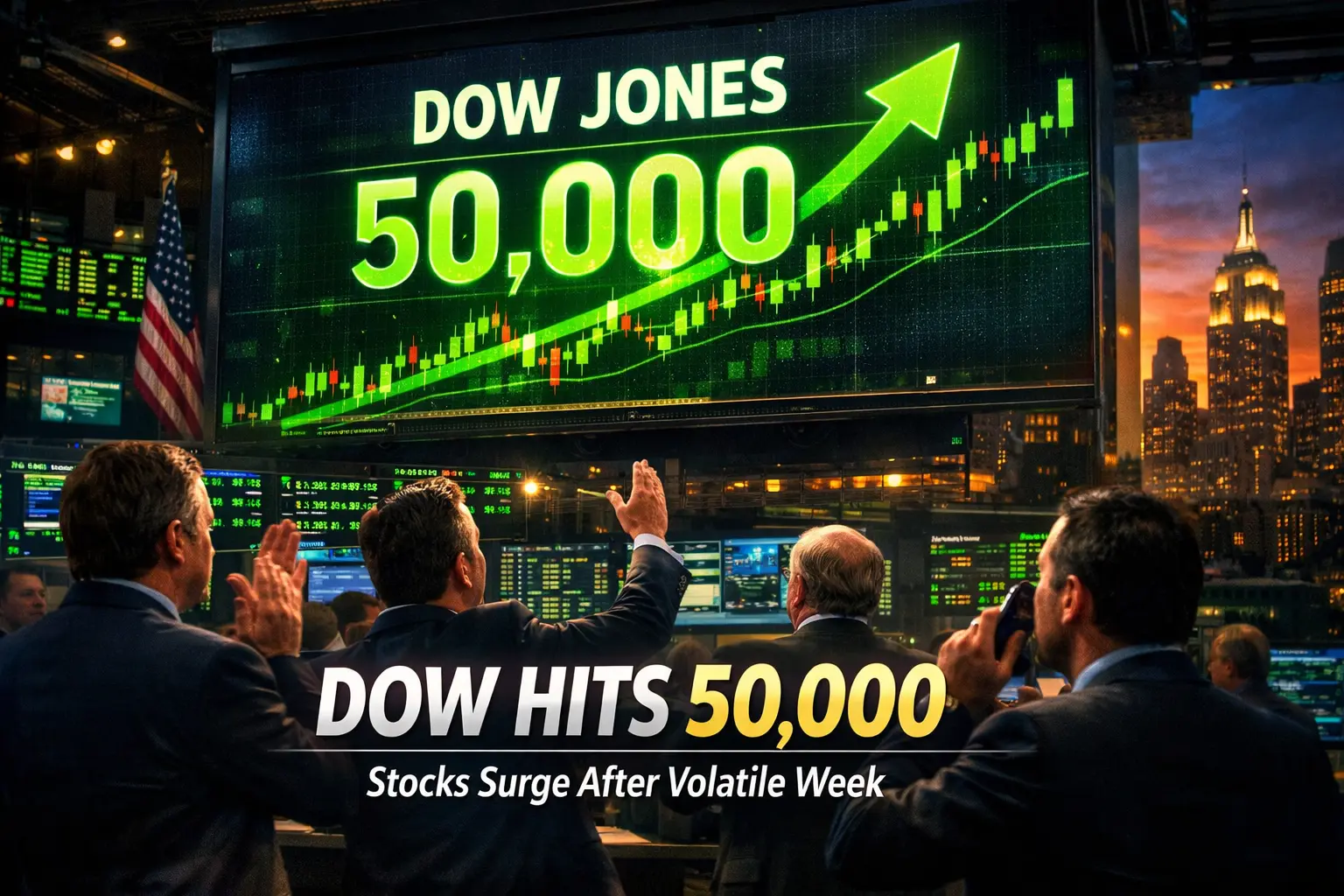(AI bubble Concerns) In the past few months, the stock market has sometimes shown excitement and sometimes fear about AI. On one hand, AI is offering new opportunities, but concerns about a growing AI bubble are making investors and speculators cautious. Due to this uncertain environment, there has been tremendous pressure on tech and chip stocks, and selling has intensified. Now the big question is whether the market is just cooling down or is it really on the verge of bursting like a bubble.
These conditions are fueling this decline. Below are the five major reasons due to which the market is reacting like this.
1. Overvaluation of AI-Driven Companies
The biggest reason for the sell-off is believed to be that the shares of AI-focused companies are trading at very high prices. Shares of companies like Nvidia, Microsoft and Alphabet have risen rapidly due to the hype of AI. Their growth is clearly visible, but some experts believe that the market is already counting on the profits of the coming years. This overvaluation is forcing many investors to take profits because they fear that the condition of AI shares may become like the dot-com bubble.
2. Pressure on Semiconductor and Chipmakers
Chipmakers have been at the forefront of the mobile revolution as they develop architectures that train machine learning models and power data centers. But now the concerns about gaming have spread to the semiconductor sector. Some fear that the forecasts for demand for plastic chips will not match the current story. That’s why tech and chip stocks like Edit, Internet, and Nvidia are getting a speed out-upload view – although until recently these stocks were constantly climbing in the hope that the studios would never end.
3. Rising Interest Rates and Economic Uncertainty
A big reason is the current economic environment. Interest rates in the US are very high right now, making it expensive to take a loan, and this is putting direct pressure on growth sectors like tech. When investors think that growth will slow, they reduce investment in high-risk assets. On top of this, concerns about the AI bubble (AI Bubble Concerns) have been added, due to which both retail and large investors are now being more cautious than before.
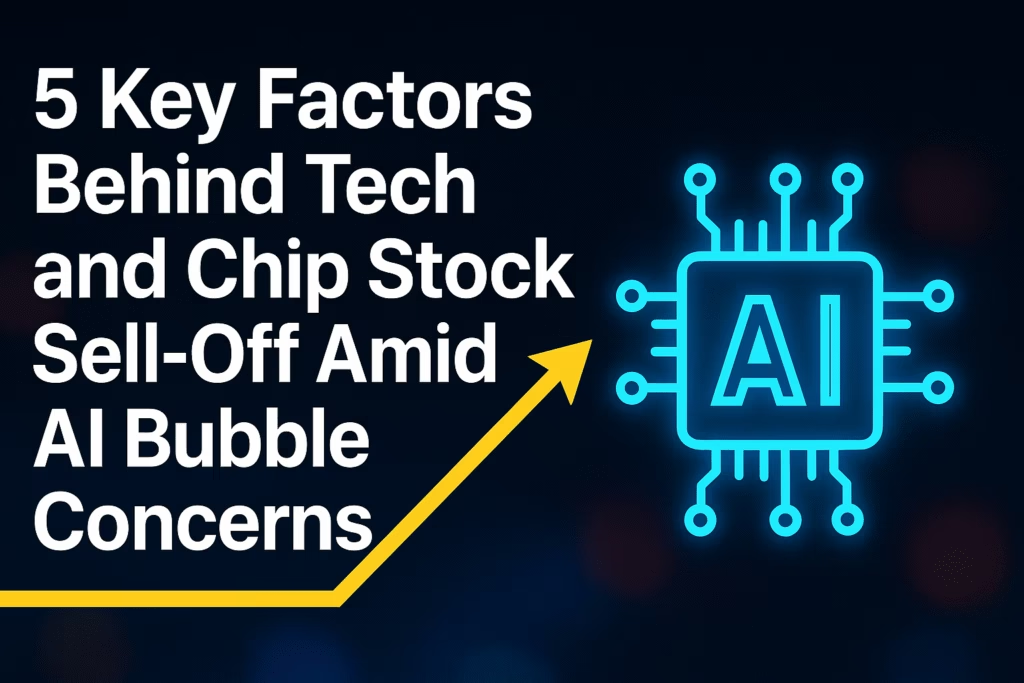
4. Profit-Taking After Historic Gains
Over the past few years, particularly in 2023 and early 2024, hotels have driven the stock market to new highs, with the tech sector leading the way. But now many investors are taking profits because they feel the boom was too early and the recession was overdone. This doesn’t mean that people don’t trust the future of construction, but more likely it means that middlemen want to secure profits before studios panic.
5. Mixed Signals From Analysts and Market Experts
Finally, the different opinions of experts are adding to the uncertainty in the market. Some believe that AI is a long-term trend and its demand will always remain. At the same time, others say that the hype of AI has far surpassed reality. Due to these confusing opinions, it has become difficult for investors to decide whether to continue investing in AI-related companies or take a step back until the situation becomes clear.
The Bigger Picture: Is It Really a Bubble?
The recent fall in tech and chip stocks clearly shows that the concerns of an AI bubble (AI Bubble Concerns) are deepening in the minds of investors. But it is important to remember that such fluctuations keep happening again and again in the stock market. The difference is that, unlike the earlier futile bubbles, AI today is really bringing real change in sectors like healthcare, finance, and automation. This is why long-term investors can consider this fall as a golden opportunity, while short-term traders are moving ahead with caution in the current uncertainty.
Conclusion
The current decline in tech and chip stocks clearly shows how sensitive the market is to concerns of an AI bubble Concerns. Fear of overvaluation, uncertainty about demand for chips, high interest rates, profit-taking, and divergent opinions among experts—all these factors are accelerating this trend. In such a situation, it is important for investors to be able to differentiate between short-term hype and long-term prospects. AI will remain the most transformative technology of the coming decade, but smart ones will be those who maintain a balance between optimism and caution while moving forward.
Also read:
Walmart Stock (WMT) Forecast: Expected Price Movement After This Week’s Strong Earnings (2025)
Tech, chip stock sell-off continues as AI bubble fears mount


